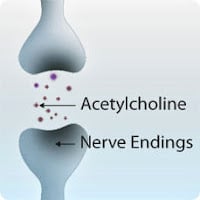HOW QUICKLY your pupil dilates during cognitive tests can offer a low-cost, low-invasive screen for Alzheimer’s — even before the earliest signs. Learn how it works and why it can make a big difference.
Alzheimer’s disease (AD) begins to alter and damage the brain years — even decades — before symptoms appear, making early identification of AD risk paramount to slowing its progression.
Easy, Low-Cost Alzheimer’s Test
This study shows that with further developments, measuring how quickly a person’s pupil dilates while they are taking cognitive tests may be a low-cost, low-invasive method to aid in screening individuals at increased genetic risk for AD before cognitive decline begins. The study is published online in the Neurobiology of Aging, by scientists at University of California San Diego School of Medicine.
In recent years, researchers investigating the pathology of AD (Alzheimer’s Disease) have primarily directed their attention at two causative or contributory factors: the accumulation of protein plaques in the brain called amyloid-beta and tangles of a protein called tau. Both have been linked to damaging and killing neurons, resulting in progressive cognitive dysfunction.
Alzheimer’s & Pupillary Dilation Responses
The UC San Diego study focuses on pupillary responses which are driven by the locus coeruleus (LC), a cluster of neurons in the brainstem involved in regulating arousal and also modulating cognitive function. Tau is the earliest occurring known biomarker for AD; it first appears in the LC; and it is more strongly associated with cognition than amyloid-beta. The study was led by first author William S. Kremen, PhD, and senior author Carol E. Franz, PhD, both professors of psychiatry and co-directors of the Center for Behavior Genetics of Aging at UC San Diego School of Medicine.
The LC drives pupillary response — the changing diameter of the eyes’ pupils — during cognitive tasks. (Pupils get bigger the more difficult the brain task.) In previously published work, the researchers had reported that adults with mild cognitive impairment, often a precursor to AD, displayed greater pupil dilation and cognitive effort than cognitively normal individuals, even if both groups produced equivalent results. Critically, in the latest paper, the scientists link pupillary dilation responses with identified AD risk genes.
Screening Alzheimer’s Before Symptoms Even Appear
“Given the evidence linking pupillary responses, LC and tau and the association between pupillary response and AD polygenic risk scores (an aggregate accounting of factors to determine an individual’s inherited AD risk), these results are proof-of-concept that measuring pupillary response during cognitive tasks could be another screening tool to detect Alzheimer’s before symptom appear,” said Kremen.
Continued below ads by Amazon…
- William S. Kremen, Matthew S. Panizzon, Jeremy A. Elman., Eric L. Granholm, Ole A. Andreassen, Anders M. Dale, Nathan A. Gillespie, Daniel E. Gustavson, Mark W. Logue, Michael J. Lyons, Michael C. Neale, Chandra A. Reynolds, Nathan Whitsel, Carol E. Franz. Pupillary dilation responses as a midlife indicator of risk for Alzheimer’s Disease: Association with Alzheimer’s disease polygenic risk. Neurobiology of Aging, 2019; DOI: 10.1016/j.neurobiolaging.2019.09.001
SOURCES:
-
University of California – San Diego
Co-authors include: Matthew S. Panizzon, Jeremy A. Elman, Anders M. Dale, Daniel E. Gustavson and Nathan Whitsel, UC San Diego; Eric L. Granholm, UC San Diego and Veterans Affairs San Diego Healthcare System; Ole A. Andreassen, Oslo University Hospital; Nathan A. Gillespie and Michael C. Neale, Virginia Commonwealth University; Mark W. Logue, VA Boston Healthcare System and Boston University; Michael J. Lyons, Boston University; and Chandra A. Reynolds, UC Riverside.












Yes I want to help my mother. Please offer any information on AD and acetyl-L-carnitine. Thank you
Can you tell us more about who does this kind of testing?